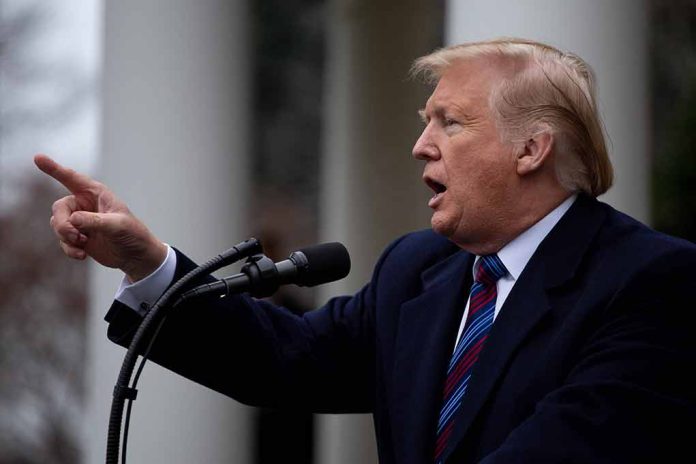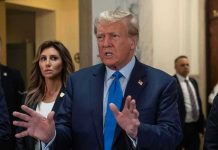
President Trump’s executive order granting refugee status to White Afrikaners has drawn nearly 70,000 applicants from South Africa while creating diplomatic tensions between the two nations.
Key Takeaways
- President Trump’s executive order offering refugee status to South Africa’s White Afrikaner minority has led to approximately 67,000 resettlement requests being evaluated by the U.S. Embassy in Pretoria.
- The administration established “Mission South Africa” to facilitate Afrikaner resettlement in the United States, citing “unjust racial discrimination” as justification.
- Secessionist groups like Orania and the Cape Independence Advocacy Group have been emboldened by Trump’s actions, seeking U.S. support for autonomous recognition within South Africa.
- South African President Cyril Ramaphosa opposes these movements, emphasizing they don’t represent the majority’s desire for national unity.
- Diplomatic relations have deteriorated, with the U.S. expelling South Africa’s ambassador and cutting aid to the country.
Trump Administration Extends Refugee Status to White Afrikaners
President Donald Trump issued an executive order designating White Afrikaners as eligible for refugee status in the United States. The order specifically referenced Afrikaners as “victims of unjust racial discrimination” in South Africa. Following this announcement, the South African Chamber of Commerce in the USA (Saccusa) reported tens of thousands of registrations on its website from individuals seeking more information about the resettlement opportunity.
According to BBC reports, nearly 70,000 South Africans have expressed interest in the refugee program. Most applicants possess Afrikaner or English names and are between 25-45 years old with two to three dependents. Saccusa, which called the executive order a “pivotal step,” forwarded the list of interested individuals to the U.S. Embassy in Pretoria, which confirmed receipt of these applications.
How could we be expected to go to South Africa for the very important G20 Meeting when Land Confiscation and Genocide is the primary topic of conversation? They are taking the land of white Farmers, and then killing them and their families. The Media refuses to report on this.… pic.twitter.com/GXiVOI5vZD
— Donald J. Trump Posts From His Truth Social (@TrumpDailyPosts) April 12, 2025
Diplomatic Fallout and South African Response
The executive order has severely strained already tense U.S.-South Africa relations. South African President Cyril Ramaphosa has pushed back against Trump’s characterization of the situation, highlighting that his government’s policies aim to promote “public access to land in an equitable and just manner as guided by the constitution.” The diplomatic dispute escalated when Secretary of State Marco Rubio labeled South Africa’s ambassador a “race-baiting politician” before expelling the diplomat.
Fikile Mbalula of the African National Congress has criticized the U.S. initiative, calling it unnecessary in a peaceful nation. The timing of the order coincided with President Ramaphosa signing legislation allowing land seizure without compensation when deemed in the public interest. While this bill has been controversial, Ramaphosa maintains that no land has been seized and the legislation simply ensures more equitable land access in a country where the white minority continues to hold most privately owned land and wealth.
Orania’s Bid for U.S. Recognition
The Trump administration’s refugee offer has emboldened secessionist movements within South Africa. The Orania Movement has pivoted from seeking refugee status to requesting U.S. support for autonomous recognition within South Africa. Joost Strydom, Orania’s leader, has framed their message as “Help us Here” rather than seeking evacuation of Afrikaners from the country.
Similarly, the Cape Independence Advocacy Group has been lobbying in Washington for a referendum on the secession of the Western Cape province. South African government spokesman Vincent Magwenya has firmly rejected these movements, stating they don’t represent the majority of South Africans. Orania has developed its own infrastructure and successful agricultural projects, presenting itself as a model for Afrikaner safety and cultural preservation rather than a temporary refuge.
“Mission South Africa” Implementation
The U.S. Embassy in Pretoria has begun scheduling interviews with Afrikaner applicants as part of the refugee program. According to internal documents, the embassy sent a memo to the State Department outlining plans to “propose long-term solutions, to ensure the successful implementation of the president’s vision for the dignified resettlement of eligible Afrikaner applicants.” This initiative, dubbed “Mission South Africa,” represents a significant commitment from the Trump administration.
Trump has repeatedly claimed that white farmers in South Africa face persecution, stating in public remarks that “they are taking the land of white farmers, and then killing them and their families.” These claims have been disputed by South African officials, who point out that the country has been working toward racial reconciliation since the end of apartheid over 30 years ago, when Nelson Mandela envisioned a “rainbow nation.” The refugee program and Trump’s statements have reignited racial tensions in South Africa’s post-apartheid society.
Sources:
South Africa reels over Trump’s offer of refugee status to white Afrikaners
Almost 70,000 South Africans interested in US asylum
‘Mission South Africa’: How Trump Is Offering White Afrikaners Refugee Status



